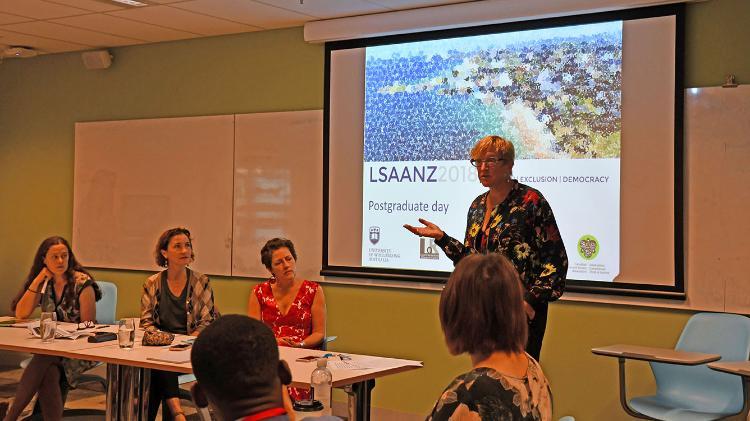My name's Martin O'Brien. I'm currently the MBA director in the Sydney Business School where the most high profile research I've done lately is related to penalty rates in the retail and hospitality industries.
So penalty rates are extra percentages on top of the normal wage rate that are paid sometimes late at night, on weekends and public holidays. The reasons that the penalty rates were reduces the employers were making two main arguments. So the first one was that Sunday's were no longer significant or special. The second major thing which is really what I looked more at with the research as employers were saying look if we can reduce those public if we can reduce those penalty rates on Sundays and public holidays they'll be able to open businesses, open them for longer hours or employ more people.
We've come up with three potential explanations for why we haven't seen extra employment or more businesses open. The first one I think is a little bit cheeky and it's saying that the evidence before the Fair Work Commission to begin with was.... was indirect, it was a bit of a tangent to the main issues or it was straight-out biased and flawed. We've been able to do a longer-term study, looking at whether employment had increased after each of those penalty rate decreases and after the first two or three that we've analysed so far we haven't found any evidence of any increase in employment. So no more businesses opening, they're not opening for longer hours and they're not employing more people which were all of the main arguments that the Fair Work Commission thought were going to happen if they reduce the penalty rates. But without these turning into an employer bashing exercise there's two other things that occurred at the same time.
So at the beginning we've got flawed evidence to the Fair Work Commission. But the fair work commission based their decision on economics. So with economics we've got a long history of making big assumptions in our analysis and we could say; wage costs go down so employment goes up ignoring everything else which is what the ceteris paribus condition means. The problem with that is that we had a few other things happening at the same point which were really relevant and could have worked at odds to what the penalty rate reduction was, was meant to do.
The other problem that we've got is the the low income growth across the whole economy. So that's really been one of the the big things that the Reserve Bank and Treasury and government have been talking about over the last few years, is the fact, that income across all wage earners, so as well as hospitality and retail across all industries, is relatively low. On exactly the same date as the penalty rate reduction occurred there was an increase in the minimum wage rate. So for a lot of businesses if they were to employ people on Sundays and public holidays, their wage costs would go down but every other day of the week their wage costs were going up. So if they're looking at their costs over the whole week that minimum wage increase could have really canceled out any effect a penalty rate reduction is going to have.









